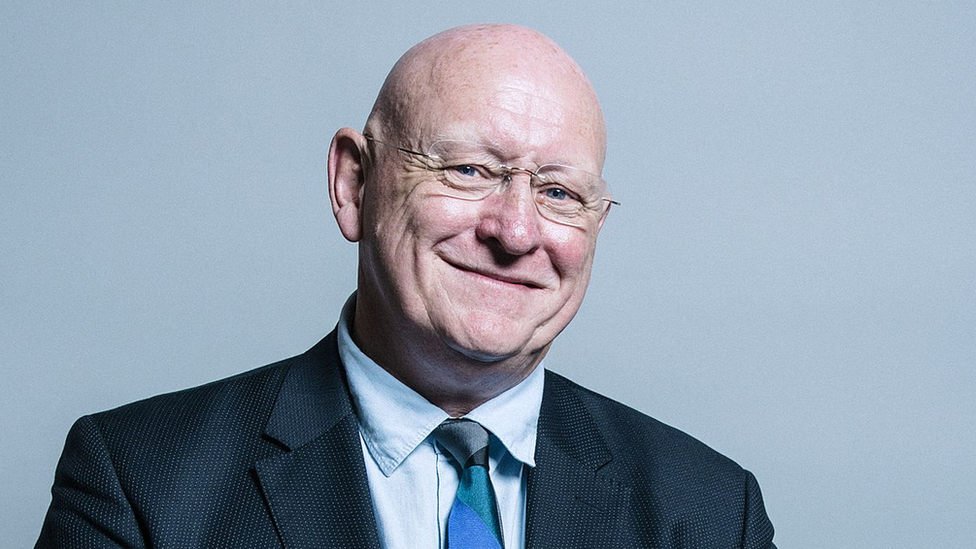Why don't MPs vote for things they [may] agree with?
- Published
- comments

'Not an attempt to derail Brexit' - Hywel Williams MP
It's a familiar pattern to Westminster veterans. Plaid Cymru propose an amendment to a government bill and challenge Welsh Labour MPs to vote for it.
Labour (usually) refuse to rise to the bait. Plaid Cymru then issue a statement accusing Labour MPs of betraying Wales (or similar).
On Tuesday, Plaid Cymru tried to amend the European Union (Withdrawal) Amendment Bill - (aka 'great repeal bill') to ensure the UK couldn't repeal the law under which Britain entered the European Community without the consent of the Welsh Assembly, Scottish Parliament and Northern Ireland Assembly.
'Derail'
Plaid Cymru insist they accept the referendum vote. "Our amendment was not an attempt to derail Brexit - it was an attempt to make sure Wales and the other UK countries have an equal say on our future," said Arfon MP Hywel Willliams. "Every national Parliament should be involved in this process, not just Westminster."
The four Plaid MPs were joined by their SNP colleagues, 12 Liberal Democrats, one Green and one Labour MP - Albert Owen, from Ynys Mon. They lost by 318 (mostly Conservative) votes to 52.
Three (Brexiteer) Labour MPs voted with the Conservatives; the rest (apart from Albert Owen) abstained. Even if they had voted for the Plaid amendment, it would still have failed.
Cue the inevitable press release from Plaid Cymru, external condemning in passing the Conservatives who voted it down, but at rather greater length the Labour MPs who didn't vote.
Plaid has now written to First Minister Carwyn Jones "asking for an explanation as to why the Labour Party changed position on giving Wales a meaningful say in the assembly on the final Brexit deal". It hasn't, so far as I know, written to Theresa May asking why her MPs blocked the amendment.
The new leader of the Welsh Liberal Democrats, Jane Dodds, was also cross. She said: "If we ever needed proof that we can't trust Labour to stand up for Wales, this was it. Labour politicians in Cardiff Bay will be understandably angry that their colleagues in London decided to turn their backs on Wales at an incredibly important point in the Brexit negotiations."
I asked Labour MPs why they didn't vote. Was it for tribal reasons? One opposition whip said the Plaid amendment was badly drafted, another MP said Labour had its own amendments it would put forward later. (The Plaid amendment would have offered a veto to a Northern Ireland Assembly that currently doesn't sit, which might also be problematic).
A Welsh Labour spokesperson said: "This amendment was not one of those which were proposed by the Welsh and Scottish governments and which have broad cross-party support: our efforts are focussed on securing support for those amendments."
A Plaid Cymru source had a different take on it: "Labour didn't vote for our amendment as they were scared it would give the Scots a chance to block the Bill."
Abstention is becoming something of a habit at Westminster, partly as a consequence of the government's tiny (even with the DUP) majority. The Conservatives have upset the Speaker by not taking part (in non-binding) votes on controversial issues forced by Labour. , external
The prime minister may have survived this challenge to her flagship legislation but there will be others down the line where she will be more vulnerable. The Scottish Conservatives have already signalled there are parts of the bill they want to change , externaland Theresa May will need to compromise over the redistribution of powers from Brussels or risk Commons defeat on another day.